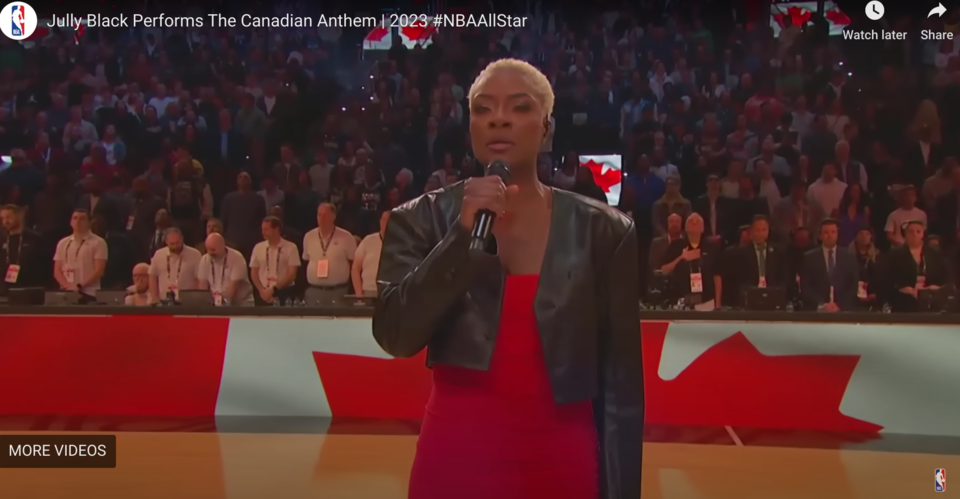COLUMN: Why is it such a struggle to admit the truth?

The fury of insults and racial slurs targeting Jully Black ‘highlight the need for a better understanding of the true history of this land,’ says local elder
From CollingwoodToday, Feb 28 2023
Column: Jeff Monague
Long before anyone ever thought of putting up a flag or creating an anthem for the fledgling state of Canada, there were the first flags and the first songs of this land we call Turtle Island.
The first flags of this land were our Eagle Staffs and each nation had one.
We also had a special song to go with each of our staffs that memorialized the land and the people that were a part of it. The songs invoked imagery of our place among the forests, lakes, rivers, and wildlife and they spoke of how we were spiritually one with the land.
The songs were land acknowledgements like no other and they extolled our spiritual interconnection to everything around us. They affirmed that the First Nations were the stewards of Turtle Island and that we were blessed to live upon it.
Then, after thousands of years, foreign states, France, and Britain, began imposing their rule on Turtle Island. As they seized lands, they began to execute new laws that forbade First Nations from being able to consummate their original purpose as stewards of the land.
And the songs, the original anthems, were silenced.
For a time, there was a new song. A song with no connection to the land. It was a song to praise kings and queens from England who were the powers that sanctioned the seizure of Turtle Island and the erasure of its First Nations.
Eventually, that song gave way to yet another song; O Canada. This new song exalted praise to the fledgling state. And once more, there was no real connection to the land itself. There was no mention of the First Nations people. Well, almost.
You know that lyric that says, “Our home and native land?” Well, me and countless other First Nations people have been singing it as, “Our home on Native land,” for years now. I can even recall singing it that way while serving in Canada’s military when I was stationed in a foreign country, standing at attention during regimental and base parades.
Last week, the great R&B icon, Jully Black, sang that exact lyric at an NBA all star game. The resulting fury of insults and racial slurs targeting her highlighted the need for a better understanding of the true history of this land.
Our home on Native land (yes, capital N), acknowledges what took place and conforms to the original intent of the Truth and Reconciliation Commission’s report of 2015 and places truth at the forefront.
At times Canada can be as garish as its flag and its anthem. It is deliberate in glossing over its true relationship with the First Nations of this land. One small change in its national anthem could change that.
No truer version of O Canada has ever been sung than the version sung in Cree by Si Pih Ko (Trina Francois) as she bared her very soul to the world while singing out to Pope Francis in Calgary last summer. Her message was no different than the original songs that were sung beside an Eagle Staff by her ancestors for thousands of years prior to contact. She sang of her heart’s connection to the land. She sang of her people’s displacement. She sang of her people’s erasure.
Erasure of a people in Canada is as prominent and difficult to ignore as the Friendly Giant’s big boot in the middle of the floor; so why is it such a struggle to admit the truth?
Erasure is reflected in the lyrics of O Canada. One small change could make a difference. Isn’t that what reconciliation was supposed to be about?
Jeff Monague is a former Chief of the Beausoleil First Nation on Christian Island, former Treaty Research Director with the Anishnabek (Union of Ontario Indians), and veteran of the Canadian Forces. Monague, who taught the Ojibwe language with the Simcoe County District School Board and Georgian College, is currently the manager of Springwater Provincial Park. His column appears every other week.
read here









Leave a Reply